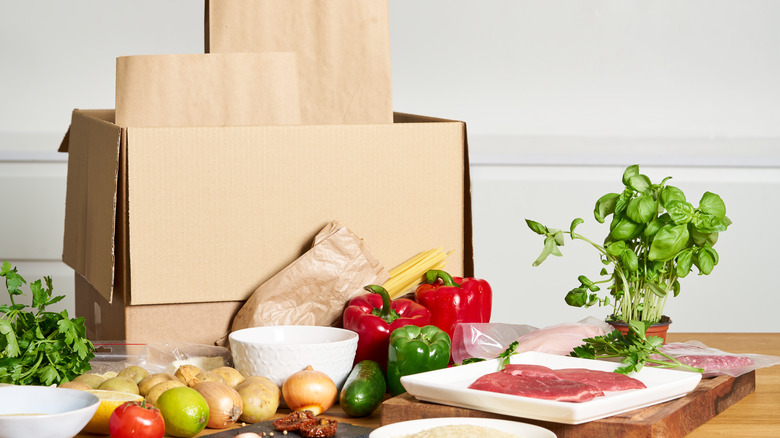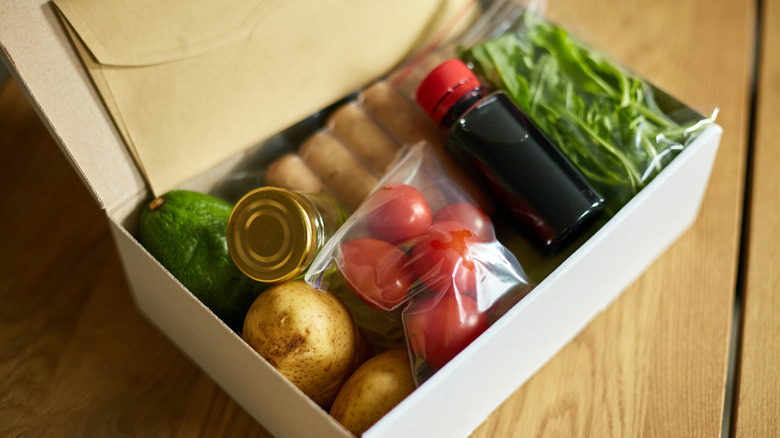What Chefs Actually Think Of Meal Delivery Services
The fresh food meal delivery services industry is growing fast. From an estimated $6.9 billion in 2021, it's approximated to shoot to over $10 billion in 2024 (per Statista). The services sell themselves on the convenience that they offer –– food delivered at home. It's no surprise that the industry has even high-ranking personalities and celebrities both as owners and consumers. Notable of these include Beyoncé with her organic gluten-free 22 Days Nutrition, Martha Stewart with her Martha and Marley Spoon that provides pre-portioned kits and recipes, Ayesha Curry with her Gather, showcasing her Food Network stardom and personalized recipes, and Oprah Winfrey with her refrigerated meals with Kraft Heinz among many other notables (via People).
While some people welcome these companies wholeheartedly, others look down upon them for their tendency to create unnecessary wastage and undermine kitchen and food creativity. Notable of these is Amanda Cohen, chef and owner of Dirt Candy, who sees meal kits as cheating rather than cooking. Other chefs have their own thoughts too about meal delivery services.
Meal delivery services can do more harm than good
Meal kits should be taken with skepticism according to a judge on a Food Network show. "Initially I thought that these meal kits were great ideas," Seamus Mullen, a food judge, chef, and cookbook author told HuffPost. After checking out some of them and listening to what his friends who had checked them too, Mullen got a feeling "like people who like to cook [and] want to cook, they don't necessarily want a half-a–ed version of cooking."
Mullen is also pessimistic that these meal kit services can face the future. He says what people want is to get better food at home and that these companies cannot sustain that. Joe Sasto, a culinary expert, expresses similar sentiments. His bone of contention is where these companies source their goods suspecting genetically engineered sources.
Other experts have different views. Michael Pollan, a chef and an author of a cookbook that became a Netflix documentary, told the Seattle Times "They are teaching very valuable lessons to people," adding that "Whether this is a step in a process or an enduring solution to a problem, I don't know the answer to that." Another cookbook author Mark Bittman resigned as a columnist to join a meal kit (Purple Carrot), telling the Seattle Times that, "It is cooking, It's not shopping and it's not planning and in a way it's not thinking, but it is cooking."

